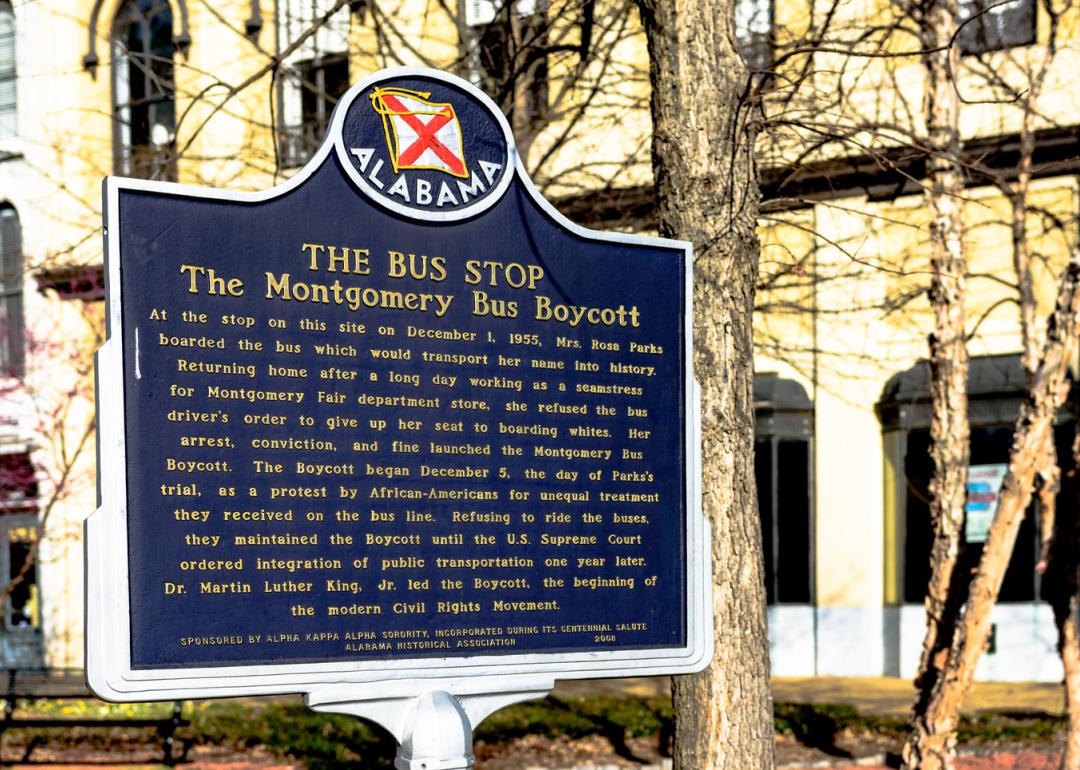
Explore historic sites commemorating Black history in Louisiana
Explore historic sites commemorating Black history in Louisiana
The legacies of influential Black Americans have not always been acknowledged, so it's not uncommon that modern-day residents may overlook the historic sites of their own cities.
While some historical Black figures in the U.S. are more well-known than others, there are in fact thousands of people dating back generations to 17th-century slavery who left traces of their visions and impacts all across the country. Whether prominent figures such as Robert Abbott, who founded one of the largest African American newspapers in the country, or more under-the-radar originators such as Obrey Wendell Hamlet, who cultivated unique vacation experiences in the Rocky Mountains, one thing's for certain: There is far more uncharted Black history in this country than charted.
Stacker identified historic sites commemorating Black history across 47 states, using the National Register of Historic Places. North Dakota, Vermont, Hawaii, and Wyoming did not have Black historic sites listed on the registry. While some states, especially in the South, are home to many sites central to the civil rights movement, Stacker listed the total sites in every state and the names of three historic sites where available. You can visit the full registry of 232 historic sites and explore the Civil Rights Trail to learn about additional locations across the U.S.
Read on to explore and learn about the historic sites celebrating Black history in your state, or read the national story here.
Louisiana by the numbers
- Sites commemorating Black history: 79 (14 with state significance, 8 with national significance)
- Kenner and Kugler Cemeteries Archeological District (Norco)
- Port Hudson (Port Hudson)
- Badin-Roque House (Natchez)
The Kenner and Kugler Cemeteries Archeological District, named after the Kenner and Kugler families, houses the remains of close to 300 Black Americans from the 1800s. The cemeteries served as a burial for enslaved people who worked on plantations as well as army veterans and were used regularly until 1928.
Continue reading to see which sites commemorate Black history in other states in your area.
Arkansas
- Sites commemorating Black history: 67 (15 with state significance, 4 with national significance)
- Centennial Baptist Church (Helena)
- Green House (Little Rock)
- Lake Nixon (Little Rock)
Dr. Elias Camp Morris, born into slavery in 1855, became a leading figure in Arkansas' Black community. Morris was the pastor of Centennial Baptist Church in the city of Helena, which served as the headquarters of the National Baptist Convention where Morris was president. He also played a crucial role in the Arkansas Republican Party.
Mississippi
- Sites commemorating Black history: 90 (27 with state significance, 8 with national significance)
- Oakland Chapel (Alcorn)
- Tallahatchie County Second District Courthouse (Sumner)
- I. T. Montgomery House (Mound Bayou)
Built in 1910, the Tallahatchie County Second District Courthouse located in Sumner, Mississippi, was where the historical Emmet Till murder trial took place. Today, visitors can still book a tour at the Emmett Till Interpretive Center.



